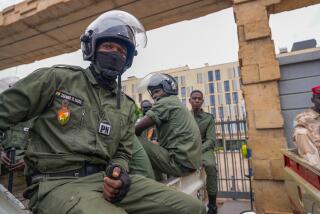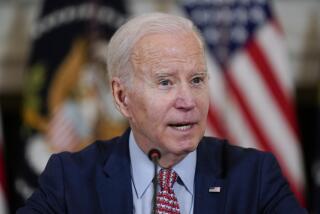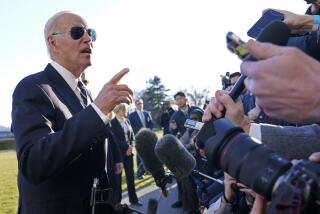Algeria to lift state of emergency
- Share via
Reporting from Dubai, United Arab Emirates — In a major concession to Algeria’s opposition groups, the government on Tuesday adopted a measure that would lift a 19-year state of emergency that has constrained civil liberties and human rights in the North African oil exporter.
A draft ordinance approved by the Cabinet would repeal the emergency law as soon as it is published in the government’s official journal, the official Algerie Presse Service reported.
An opposition leader last week said he had been assured that the state of emergency would be lifted by the end of February.
The emergency measures, long lambasted by international human rights groups, have barred peaceful protests, limited constitutionally granted political freedoms and allowed for what many described as arbitrary detentions. Ultimately, they have bolstered the power of shadowy figures in the security establishment, complicating any path toward democracy.
The strict conditions were imposed at the beginning of the country’s decade-long civil war, which pitted Islamic militants against a military-dominated government that refused to abide by the results of first-round elections in 1991 that suggested Islamists would win power. Tens of thousands died in the conflict.
Many analysts say the bloodshed during the war may explain why Algerians have been reluctant to fight their government the same way Tunisians and Egyptians did.
But inspired by the uprisings in the Arab world, thousands of Algerians have protested peacefully in recent weeks. At times, security forces have responded with tear gas, batons and arrests.
A single political party, the National Liberation Front, has ruled Algeria since it gained independence from France in 1962. The country’s leader, President Abdelaziz Bouteflika, has been in power since 1999.
Despite its sometimes vociferous anti-U.S. rhetoric, the nominally left-leaning Algerian regime has been described as Washington’s No. 1 ally against Al Qaeda’s North Africa branch, according to diplomatic dispatches released last year by the website WikiLeaks.
More to Read
Sign up for Essential California
The most important California stories and recommendations in your inbox every morning.
You may occasionally receive promotional content from the Los Angeles Times.













